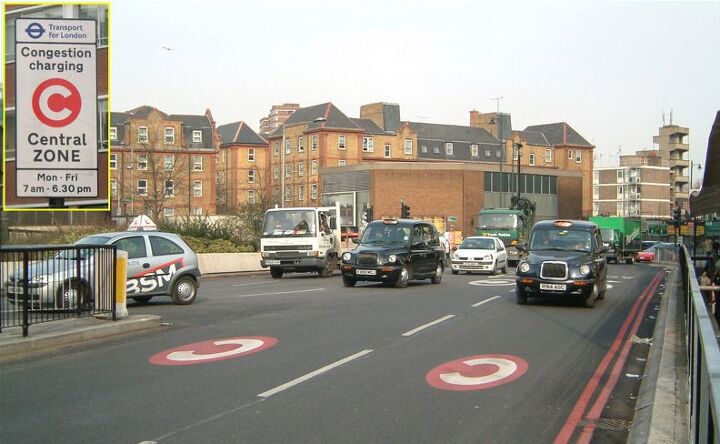#PublicTransportation
Millennials Really Do Intend to Buy Cars. Thank the Pandemic.
Forget all you’ve heard about Millennials (24-39 years old) and their disdain for automobiles. COVID-19 has changed that, as 31 percent of those without a car intend to buy one in the next six months, and 45 percent of them are Millennials.
EY, a global leader in assurance, tax, strategy, and consulting services, and a member of Ernst & Young Global Limited, issued their 2020 EY Mobility Consumer Index, surveying over 3,300 consumers across nine countries. Thirty-one percent of the respondents who don’t own a car plan to buy one in the next six months, while 20 percent that already own a car say they would be open to buying another vehicle. Both groups said that one of their principal reasons to purchase is the pandemic.
Japanese Driving Schools Benefit From Coronavirus Fears; Public Transit Now Terrifying
Driving schools in Japan are reporting an increase in attendance from individuals who already possess a driver’s license. According to The Japan Times, the new trend is epitomized by Paper Driver School Kitakanto in Maebashi. The school has seen influx of already licensed drivers this month in response to the coronavirus pandemic.
Roughly 10 percent of new students are said to have signed up as a direct result of COVID-19. As Japan’s population has a lower percentage of drivers than in North America, many are dependent upon public transportation to move about — a mobility type that’s become problematic overnight, what with fears of contagion spreading as quickly as the virus itself. To avoid sharing space, some Japanese drivers are attempting to brush up on their skills in order to feel more comfortable behind the wheel.
Same Old Song: Study Claims Uber and Lyft Increasing Congestion Problem in Seattle
A new study from Schaller Consulting is claiming that ride-hailing services, like Uber and Lyft, contributed to 94 million additional miles being driven on Seattle-area roads in 2017. We’ve heard similar claims in the past. Data-backed allegations typically revolve around the notion that app-based services don’t encourage motorists to carpool so much as they pull pedestrians away from public transportation.
Considering how difficult most subway systems and bus lines are to enjoy, that’s not hard to believe.
Transit Authorities Tepid On Electric Buses Despite Promising Tech
Despite a surplus of cities seeking ways to reduce air pollution, electric buses haven’t taken off in the United States as expected. While analysts still anticipate a sudden surge in electrification in the years to come, present-day transit authorities have continued opting for dirty diesels as the primary method of moving urbanites around town.
The primary hurdles are infrastructure and cost. Whereas subway tunnels come with equipped with a third-rail ready to deliver the voltage necessary for mass transit, above-ground applications abandoned wire networks the second the trolley fell out of fashion. Electric buses don’t need either, but they do require reliable charging infrastructure and a larger-than-average initial investment.
No Fixed Abode: Oh, That the Roman People Had but a Single Neck - or a Single Transportation Choice!
“In this country, you gotta make the money first. Then when you get the money, you get the power. Then when you get the power, then you get the women.” Thus spake Tony Montana, anticipating the recent avalanche of sexual harassment claims by a few decades. What ol’ Scarface didn’t bother to tell us is that, for some people, the power is enough. For that lesson, we have O’Brien in Orwell’s 1984, who tells us that the Party seeks power for its own sake. “The object of power is power,” he says.
Those words floated to the front of my mind when I read about Chicago’s . The city was already charging 52 cents in tax per ride — plus five bucks per airport pickup — but now it will be charging 67 cents per ride. Starting in 2019, that total will increase to 72 cents.
What could the city do with that extra 15 cents? It’s already scheduled to receive more than 70 million dollars in ride-sharing taxes. What could the justification possibly be for upping the ante? And which of the Chicago machine’s many, many incompetently-operated programs could possibly have the moral right to receive this unexpected bounty?
If you know Chicago, you know the answer. But even if you don’t know Chicago, chances are that you can make an educated guess.
No Fixed Abode: Planes, Trains, Ubers, Taxis, And Supercars
I’ll start with this: Hannah, wherever you are, I do not apologize for stealing your car. You were a real b— … well, white men like myself aren’t allowed to use the “b-word” nowadays, it’s considered more harmful to womyn than all 359 of those sexual offences that happened in Cologne that we’ve all agreed to pretend didn’t really happen. Why don’t we just say that you’re a very mean person. I don’t apologize for that, or for stealing your car.
Now, where were we, to use three words in a row that start with “w” and end with “e”? Well, it’s like this:
Driverless Cars Are Coming, But Will Cities Be Ready?
Probably not.
According to a study by the National League of Cities, only 6 percent of future city plans consider the potential impact autonomous vehicles will have in the next few years, including driverless car lanes and scaling back parking as ride-share services become more popular.
The study collected transportation plans of the 50 biggest U.S. cities, as well as the most-populous cities in every state. In all, 69 city plans were amassed and studied for future traffic and road plans.
Despite automakers rushing to put autonomous cars on the road by 2020, the study suggests that many cities won’t be able to adequately accommodate those cars, nor will they adapt fast enough to changing transportation modes that may challenge conventional public transportation and infrastructure wisdom.






















Recent Comments